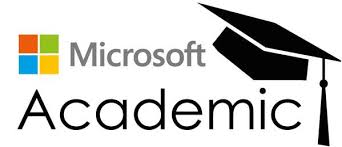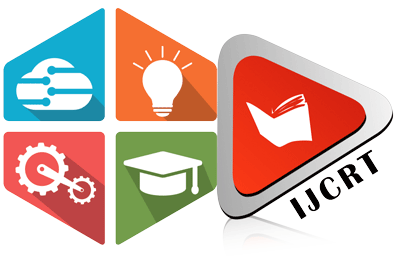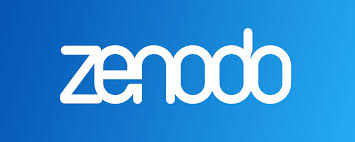INTERNATIONAL JOURNAL OF CREATIVE RESEARCH THOUGHTS - IJCRT (IJCRT.ORG)
International Peer Reviewed & Refereed Journals, Open Access Journal
IJCRT Peer-Reviewed (Refereed) Journal as Per New UGC Rules.
ISSN Approved Journal No: 2320-2882 | Impact factor: 7.97 | ESTD Year: 2013
Call For Paper - Volume 14 | Issue 2 | Month- February 2026
Scholarly open access journals, Peer-reviewed, and Refereed Journals, Impact factor 7.97 (Calculate by google scholar and Semantic Scholar | AI-Powered Research Tool) , Multidisciplinary, Monthly, Indexing in all major database & Metadata, Citation Generator, Digital Object Identifier(CrossRef DOI)
Contact Us Click Here
WhatsApp Contact Click Here
Published Paper Details:
Paper Title
Bridging The Skill Gap: The Role Of Teachers And Trainers In Enhancing Student Competencies
Authors
Anoop B, Shruthi Bhonsle, Dr. Neha Dubey
Keywords
Teaching Methodologies, Teachers & Trainers, Training Programs
Abstract
In today's rapidly evolving global economy, the gap between the skills required by employers and those possessed by job seekers--commonly referred to as the skill gap--has emerged as a pressing challenge across industries. As organizations strive to stay competitive in an era shaped by technological advancements, globalization, and shifting job roles, the demand for a workforce equipped with both technical and soft skills has significantly intensified. However, the education system has often struggled to keep pace, leaving many graduates underprepared for the realities of the workplace.
The skill gap is not just a buzzword in academic or policy circles--it is a reality that affects students, educators, and employers alike. While students find themselves facing limited job prospects despite holding academic qualifications, industries continue to report shortages of skilled professionals. Meanwhile, educators are under growing pressure to adapt their teaching approaches and curriculum to bridge this widening divide. As new fields like information technology, client-oriented services, and digital platforms continue to expand, the urgency to rethink traditional educational models becomes even more apparent.
One of the primary reasons behind this divide is the speed at which technology evolves. In sectors where innovation is constant, such as IT and service industries, the skills needed to succeed are changing faster than educational institutions can adapt. While high-income countries have been relatively successful in aligning education with industry needs, developing regions often lack the resources and infrastructure necessary to update teaching practices and equip students with modern competencies. This has led to a global imbalance, where access to quality education and training becomes a key determinant of employability and economic participation.
The skill sets required today go far beyond technical proficiency. Employers now seek individuals who can think critically, communicate effectively, solve problems creatively, and collaborate across teams. These cognitive and interpersonal abilities are becoming just as important--if not more so--than traditional academic knowledge. For many students, especially those from underserved or rural backgrounds, limited access to resources and exposure to real-world experiences further compounds the challenge of acquiring these essential competencies.
In light of these developments, the role of educators--particularly teachers--has never been more pivotal. Teachers are not only responsible for delivering content, but they also act as facilitators, mentors, and innovators. Their ability to design relevant curriculum, implement engaging teaching methods, and create inclusive learning environments can directly influence how well students are prepared for the professional world. Moreover, teachers who embrace technology, encourage creativity, and provide practical insights into the demands of the workforce contribute significantly to bridging the gap between education and employment.
This study aims to explore how teachers can serve as catalysts in addressing the skill gap by enhancing student competencies. It investigates the root causes of the skill gap, the challenges faced by educational institutions, and the strategies educators can adopt to make learning more aligned with industry needs. By understanding the evolving nature of skills and the changing landscape of the job market, this research emphasizes the importance of continuous learning, adaptability, and proactive teaching practices.
In an age where talent is the new currency, the findings from this study are expected to provide valuable insights for educators, policymakers, and employers alike--guiding them towards more collaborative, future-focused, and inclusive approaches to learning. Ultimately, bridging the skill gap is not the responsibility of one stakeholder alone--it requires a shared commitment across sectors, with teachers at the forefront of this transformative journey.
IJCRT's Publication Details
Unique Identification Number - IJCRT2504358
Paper ID - 281835
Page Number(s) - d42-d48
Pubished in - Volume 13 | Issue 4 | April 2025
DOI (Digital Object Identifier) -
Publisher Name - IJCRT | www.ijcrt.org | ISSN : 2320-2882
E-ISSN Number - 2320-2882
Cite this article
Anoop B, Shruthi Bhonsle, Dr. Neha Dubey, "Bridging The Skill Gap: The Role Of Teachers And Trainers In Enhancing Student Competencies", International Journal of Creative Research Thoughts (IJCRT), ISSN:2320-2882, Volume.13, Issue 4, pp.d42-d48, April 2025, Available at :http://www.ijcrt.org/papers/IJCRT2504358.pdf
Article Preview
Indexing Partners
Call For Paper February 2026
Call For Papers
February 2026
Volume 14 | Issue 2
Last Date :
28-Feb-2026
Submit Manuscript Online Impact Factor: 7.97 Review Results : Within 02-03 Days Paper Publication : Within 02-03 Days
February 2026
Volume 14 | Issue 2
Last Date :
28-Feb-2026
Submit Manuscript Online Impact Factor: 7.97 Review Results : Within 02-03 Days Paper Publication : Within 02-03 Days
Published Issue Details
For Authors
Forms / Downloads
Other IMP Links
Indexing Partner
Research Area
LICENSE
ISSN and 7.97 Impact Factor Details

ISSN: 2320-2882 Impact Factor: 7.97 and ISSN APPROVED Journal Starting Year (ESTD) : 2013
ISSN and 7.97 Impact Factor Details

ISSN: 2320-2882 Impact Factor: 7.97 and ISSN APPROVED Journal Starting Year (ESTD) : 2013
DOI Details
CONFERENCE
CONFERENCE MANAGMENT & PUBLICATION CONFERENCE PROPOSAL
RECENT CONFERENCE

CONFERENCE PROPOSAL CONFERENCE PROCEEDINGS

CONFERENCE PROPOSAL CONFERENCE PROCEEDINGS
For Reviewer /Referral (RMS) Earn 500 per paper
Important Links
NEWS & Conference
Digital Library
IJCRT RMS | Earn 500 Per Paper.
LICENSE
Indexing Partner






































































